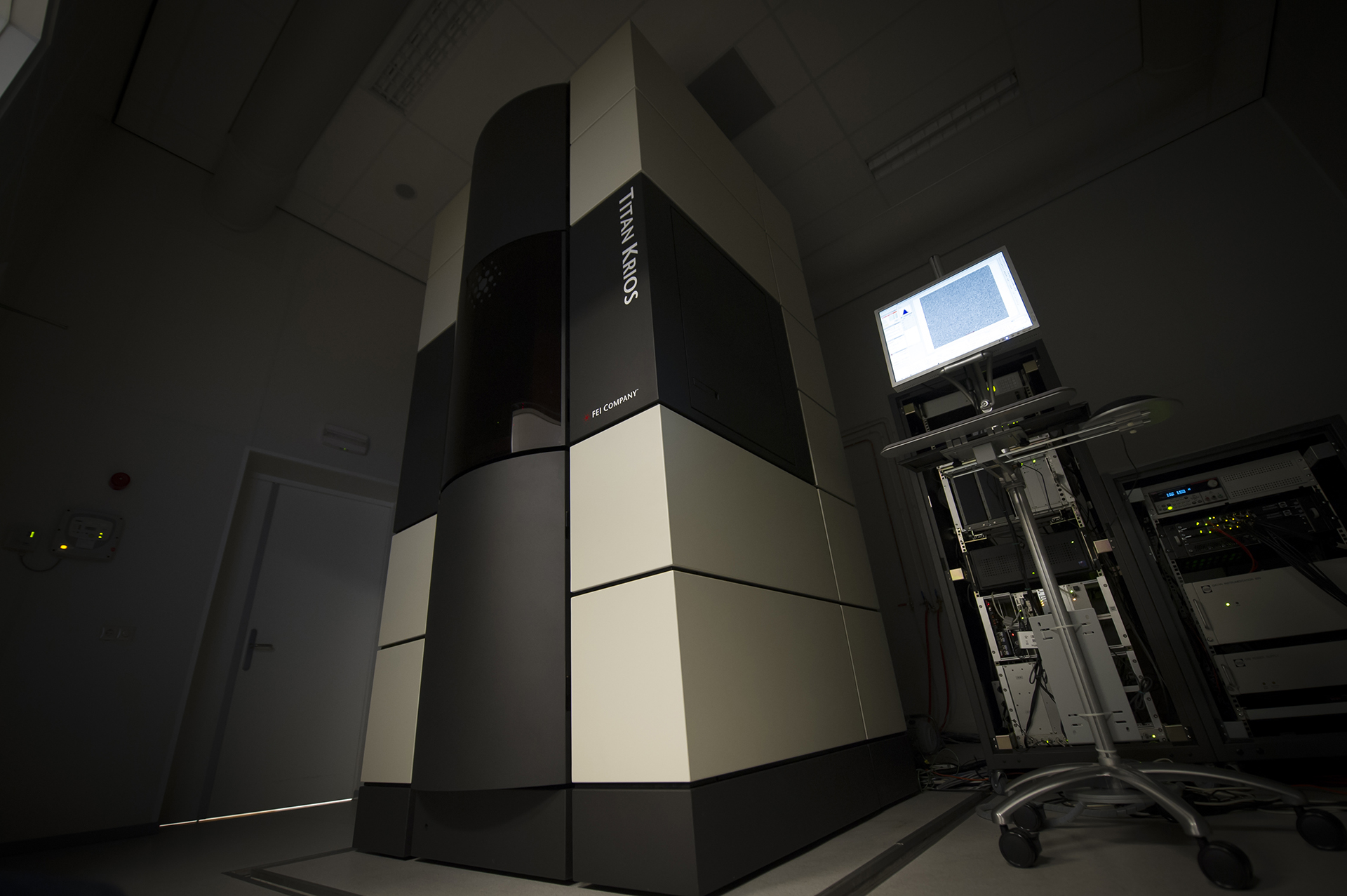
Ten million euros for unlocking novel technologies in structural biology
The European Union has invested ten million euros in the so-called iNEXT-Discovery consortium. The goal of this new consortium is to enable European researchers to extend innovative structural biology research. The Netherlands Centre for Electron Nanoscopy (NeCEN) is also part of iNEXT-Disovery, which is funded through the Horizon 2020 programme. ‘Thanks to this new consortium, we can help researchers from all over Europe.’
iNEXT-Discovery aims to facilitate knowledge generation for the development of new drugs, advanced vaccines, novel biomaterials, engineered enzymes for food production, efficient biofuels, and more. The consortium will enable leading European facilities, such as NeCEN, to offer advanced technological instrumentation and expertise to all European scientists. This allows them to perform high-end structural biology research with state-of-the-art equipment that is often unavailable in their home countries.
Advancing technologies beyond the state of the art
Joining forces within the iNEXT-Discovery consortium also enables the partners to collaborate in joint research activities that will allow new and better ways to perform structural biology experiments. iNEXT-Discovery will build on the expertise of the partners to for example develop new tools and technologies and to integrate structural biology approaches into fields such as drug development and cell imaging.
Structural biology
Structural biology is the study of the molecular structure and dynamics of biological macromolecules, particularly proteins and nucleic acids, and how alterations in their structures affect their function. Structural biology incorporates the principles of molecular biology, biochemistry and biophysics.
Research without borders
Even institutions that do not have their own facilities collaborate on planned joint research projects. Anastassis Perrakis, the iNEXT-Discovery coordinator from the Division of Biochemistry at the NKI and Oncode Institute explains: ‘With this consortium, we offer cutting-edge technologies and novel experimental possibilities to all European scientists, enabling experiments that would be impossible without our facilities, but also without their knowledge.’ Integration of new users will be further enabled through the extensive and inclusive training programme that the iNEXT-Discovery has developed, and that will be deployed in the coming four years.
iNEXT-Discovery and NeCEN
Ludo Renault, head of NeCEN, is excited about the new consortium: ‘Thanks to the iNEXT-Discovery scheme, we can help researchers from all over Europe to develop their structural biology projects. For example by providing screening services and high-resolution cryoEM data collection on our specialised Titan Krios machines. The main objective is to open our world-class facility to researchers that not have sufficient equipment and expertise at their own institutions.’

NeCEN
NeCEN is an open-access facility for high-resolution cryo-electron microscopy of biological samples. In cryogenic electron microscopy (cryo-EM), researchers cool biological samples to extremely low temperatures close to absolute zero of -273.15°C. In this way, they capture molecules in great detail and study the composition of the smallest building blocks of life. At NeCEN two state-of-the-art Titan Krios transmission electron microscopes allow cost-efficient automated data collection.
